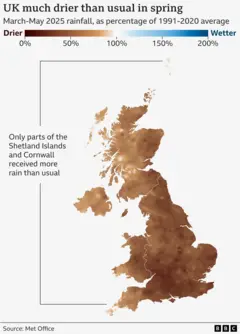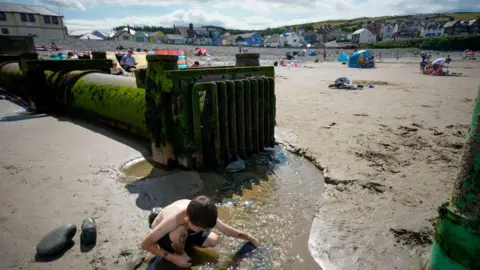Yorkshire Faces First Hosepipe Ban of the Year Amidst Record Dry Spring
Yorkshire is grappling with its first hosepipe ban of the year, a measure implemented by Yorkshire Water that is set to remain in effect until the winter months. This restriction impacts over five million households across the region, prohibiting the use of hosepipes for common tasks such as gardening, washing cars, and filling swimming pools. The decision stems from Yorkshire experiencing its driest and warmest spring on record, with rainfall falling significantly below average.
The situation has been exacerbated by the Environment Agency officially declaring a drought in the region, with forecasts indicating continued hot weather. While the ban is a necessary step to preserve water supplies, it has generated criticism from some customers who are concerned about the company’s reported high leakage rates. Earlier this year, it was revealed that Yorkshire Water was losing an estimated 21% of its water supply to leaks, amounting to approximately 260 million litres daily.

Nicola Shaw, CEO of Yorkshire Water, has addressed the leakage issue, emphasizing that it is a “priority” for the company. She explained that the underground water mains are particularly vulnerable to soil movement and drying, which can lead to fractures and leaks. Shaw assured the public that the company is actively working to reduce leakage and improve the speed of repairs, noting that current leakage levels are the lowest Yorkshire Water has ever recorded. She also clarified that while personal use of hosepipes is restricted, businesses are permitted to continue their operations as usual. Shaw further pointed out that using a hosepipe for just one hour to wash a car can consume as much as 1,000 litres of water, underscoring the importance of conservation.


The drought conditions and the subsequent hosepipe ban highlight the ongoing challenges of water management in the face of climate change and increasing demand. Consumers are urged to be mindful of their water usage during this period.




Post Comment